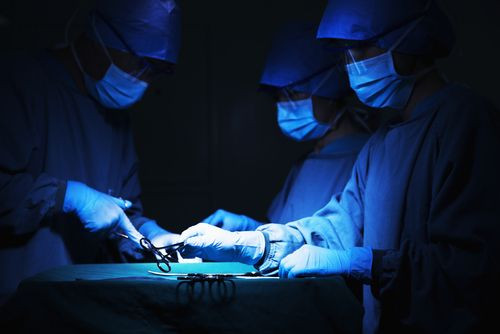Organ Trafficking Is On The Rise, As Transplant Surgeries Increase Around The Globe

Organ trafficking undoubtedly ranks among the most gruesome and morally reprehensible of crimes. Now, a new study suggests this murky business is enabled and facilitated by legitimate institutions.
Once organs are trafficked, mainstream health care services help to “launder” these transactions, giving them the appearance of legitimacy while hindering estimates as to how often these crimes happen — in fact, nobody knows how many organs are being traded across the world. “If countries do nothing about this problem, the consequences for both donors and recipients can be terrible, as they may have to deal with dreadful health outcomes,” said Dr. Ana Manzano, a professor in the School of Sociology and Social Policy at the University of Leeds and lead author of the study.
More than a Century of Transplants
The worldwide demand for donated organs and tissues has grown exponentially since the first successful corneal transplantation over a century ago in 1906. Over time, surgeons developed the ability to perform new transplant procedures, beginning with the first successful kidney operation in 1954, and quickly followed by liver, heart, pancreas, lung, intestines, hand, and in 2010, even face transplants. As difficult as these surgeries may be, acquiring organs for transplantation is the greater challenge. Nevertheless, in the United States an average of 79 people receive an organ transplant each day.
However, a long look at the numbers is telling. In 2013, for instance, a total of 121,272 Americans were waiting for an organ, while 28,954 people had received an organ and 14,257 others had donated one. Unless some of these donors had given up two or more organs, roughly half of the recipients — or 14,697 people — must have obtained their organs illegally.
This discrepancy in the figures speaks to Manzano’s point. According to her research, the true extent of organ trafficking is difficult to pinpoint due to organ laundering — when the illegal purchase of organs appears to be a legal transaction. Various aspects of the global organ trade help to launder the transaction:
- Trafficking is a crime that spans several countries and may involve hundreds of people in a single transaction — tracing organs is difficult.
- Countries do not agree on penalties for those who buy organs, and across the globe, there is little consistency in enforcement of organ trafficking laws.
- Status is another factor: Some surgeons perform illegal transplants because they know they will only be caught if their colleagues report them.
- Those who give away their organs may be ambivalent or reluctant to talk due to a fear of prosecution.
- Those who purchase organs are likely to have falsified the transaction, saying a relative donated the organ.
- Insurers play a role whenever they pay for the follow-up treatment of transplant patients.
"In effect, illicitly purchased organs are transformed into legitimate organs by the process of integration into mainstream financial institutions (reimbursement by insurers) and health services (follow-up treatment)," wrote Manzano, who added, "Countries should follow the example of places like Spain where reporting the recipient of an organ purchased abroad is compulsory if follow-up care is requested."
More than 114,000 organ transplants are done annually in over 100 countries. Unless nations work together on this issue, many more people, in some cases the recipients as well as the donors, may become victims of this most painful blow to human dignity.
Source: Manzano A, Monaghan M, Potrata B, Clayton M. The invisible issue or organ laundering. Transplantation. 2014.



























